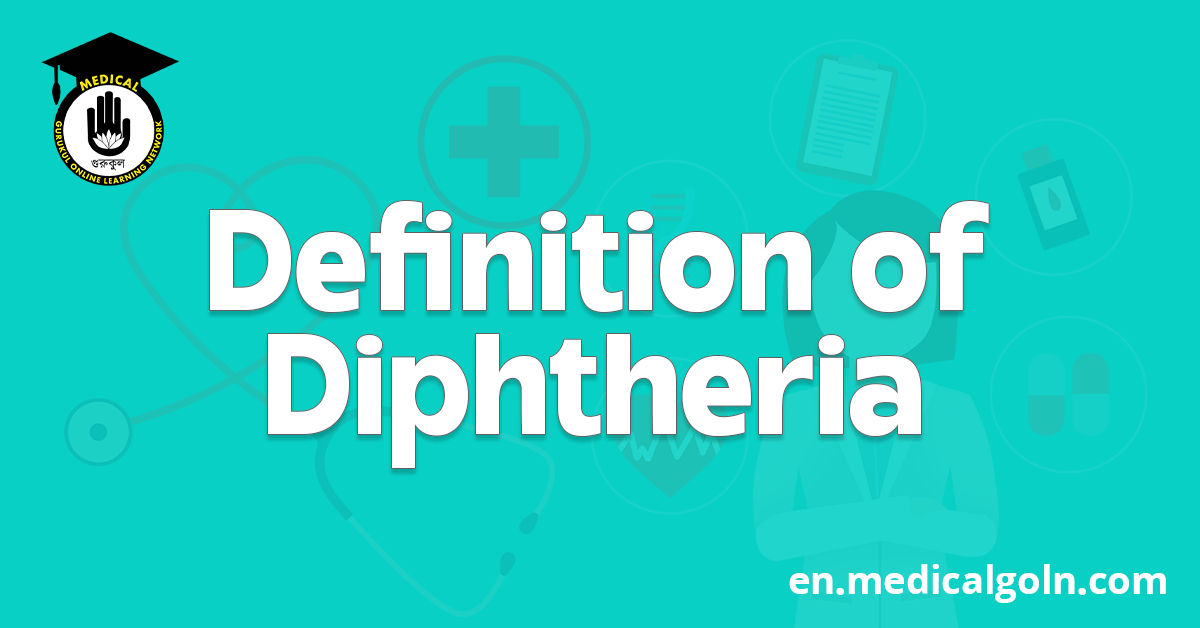Today is our topic of discussion Definition of Diphtheria
Definition of Diphtheria

Definition:
Diphtheria is an acute infectious disease caused by the bacteria Corynebacterium diphtheriae.
Agent factors:
Agent:
C. diphtheriae is a gram positive bacterium. It liberates an exotoxin for the disease.
Source of infection:
Cases or carriers
Infective material:
Nasopharyngeal secretion, contaminated fomites
Period of infectivity:
Unless treated, 14 to 28 days from the onset of the disease
Host factors:
Age:
Children 1-5 years
Sex:
Both sexes are affected.
Immunity:
Infants born to immune mothers are immune for first few months of life.
Environmental factors:
Occurs in all seasons.
Mode of transmission:
1. Droplet infection
2. Transmission by objects contaminated with nasopharyngeal secretions
Portal of entry:
1. Respiratory route
2. Non-respiratory route: Skin wounds and ulcers
Incubation period:
2-6 days

Clinical features:
1. Watery discharge per nose
2. Rapid & difficult breathing
3. Stridor & hoarseness
4. Fever & chills
5. Croup-like (barking) cough
6. Drooling (suggests airway blockage is about to occur)
8. Sore throat (may range from mild to severe
7. Painful swallowing
9. O/E:
a. Inside the mouth there may be a gray to black covering (pseudomembrane) in the throat
b. Cervical lymphadenopathy with swelling of the neck
Treatment:
Treatment started immediately before test results available –
1. Diphtheria antitoxin
2. Antibiotics: Penicillin and erythromycin
3. Fluids by IV
4. Bed rest & oxygen therapy
5. Heart monitoring
6. Correction of airway blockages
7. Carriers should be treated with antibiotics.
Complications:
1. Respiratory obstruction
2. Myocarditis
3. Temporary paralysis
4. Nephritis
Control of diphtheria:
1. Cases and carriers:
a) Early detection & treatment
b) Isolation
2. Contacts: Contacts with the case should receive an immunization or booster shot against diphtheria.

3. Community immunization by DPT/pentavalent vaccine
See also :
